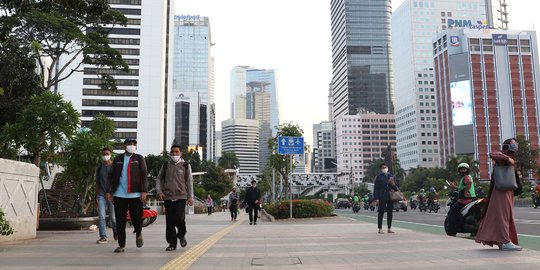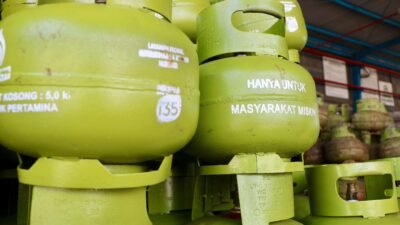As the world economy faces increasing turbulence—from geopolitical conflicts and inflation to supply chain disruptions—many nations are struggling to maintain growth and stability. However, in the midst of global uncertainty, Indonesia has taken a different path.
Rather than succumbing to external pressures, Indonesia continues to show resilience by focusing on one of its most crucial domestic agendas: job creation. The government has actively introduced strategic measures to ensure that economic challenges do not hinder employment opportunities for its citizens.
💼 Indonesia Prioritizes Employment Amid Economic Headwinds
While developed countries are battling recession threats and shrinking job markets, Indonesia is moving forward with optimism. The government, under President Joko Widodo’s administration, is implementing large-scale infrastructure projects, promoting industrial expansion, and supporting the digital economy—all with one key goal in mind: generating sustainable employment.
For instance, new manufacturing investments in areas such as electric vehicles, renewable energy, and downstream mining have opened thousands of new jobs, particularly in regions outside Java. These initiatives help reduce regional disparity while stimulating inclusive economic growth.
Moreover, digital transformation across sectors, including e-commerce and fintech, is creating fresh job opportunities for youth and tech-savvy professionals. In other words, Indonesia isn’t just preserving jobs—it’s also preparing its workforce for the future.
📈 Strategic Policies Drive Growth
Indonesia’s ability to maintain job creation in a fragile global economy is no accident. Several key policies have contributed to this achievement:
- Investment Incentives: The government has rolled out incentives for both foreign and domestic investors, making Indonesia an attractive destination for long-term projects that create jobs.
- Vocational Training Programs: To close the skills gap, the Ministry of Manpower and other agencies have expanded vocational training programs to equip workers with skills that match industry needs.
- Support for MSMEs: Micro, small, and medium enterprises (MSMEs), which account for over 90% of employment in Indonesia, receive continuous support through digitalization programs, low-interest loans, and access to wider markets.
Through these initiatives, Indonesia ensures that economic policies directly contribute to job creation—even as global markets falter.
🌱 Youth and Women: At the Center of Job Creation
Another notable achievement is Indonesia’s focus on inclusivity. Government programs have prioritized employment for youth and women, who often face barriers to entering the workforce. From digital upskilling to remote job access, Indonesia is expanding the definition of employment beyond traditional sectors.
The rise of gig economy platforms and remote work has enabled more flexible and diverse employment options, making it easier for marginalized groups to participate in the economy. This inclusive approach is vital to building a resilient and equitable labor market.
📝 Conclusion: Indonesia’s Steady Hand in a Shaky World
While many countries remain trapped in economic stagnation, Indonesia’s proactive stance on job creation serves as a model of resilience and strategic governance. By focusing on industrial growth, skill development, and inclusive employment, the country is navigating global challenges with confidence.













